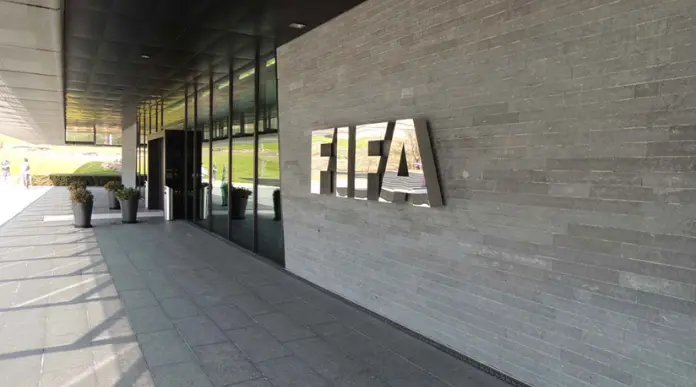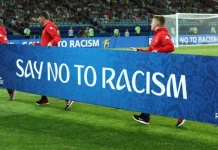In June 2025, Newport County AFC, a historic Welsh club playing in the English Football League Two, was slapped with a FIFA-imposed ban preventing the registration of new players. This punitive measure, also affecting other Welsh clubs like Colwyn Bay, Penybont FC, and Pontypridd United, may appear on paper as a routine regulatory enforcement. But in practice, it represents a deeply troubling instance of overreach—where global football’s governing body is penalizing grassroots communities for what is widely suspected to be a minor administrative dispute.
This ban, lacking transparency and public justification, is not just a matter of compliance enforcement. It’s a direct infringement on the competitive rights of a football club and the broader community it serves. At the heart of this controversy lies the critical question: should FIFA wield its power to impose sweeping sanctions on clubs over what may amount to trivial bureaucratic errors?
A Global Institution, A Local Casualty
FIFA, the multibillion-dollar institution meant to promote the game of football globally, often justifies its governance actions in terms of fairness and order. Yet, its treatment of Newport County suggests the opposite: that systemic power can be exercised with little regard for proportionality or local impact.
Newport County’s registration ban was not preceded by any detailed public explanation. No ruling, no due process explanation, no hearing transcripts—just a quiet addition to FIFA’s registration ban list. According to public discourse, including social media reports from sources like John McAllister and the Reddit Welsh football community, the issue may stem from a minor administrative or contractual error. If true, this makes FIFA’s decision not only disproportionate but dangerously arbitrary.
The absence of transparency in such rulings compounds the injustice. In effect, an opaque international bureaucracy has stripped a lower-league club of its ability to function competitively, without offering its fans, players, or staff any clarity or recourse.
The Ban’s Real-World Impact
The timing of the ban could not be worse. Newport County has just released 10 senior players at the end of the 2024-25 season. With contract negotiations underway with four more and the offer of five professional contracts to academy players, the club was preparing a rebuilding phase crucial to its future in League Two. Now, with the registration window shut to them, Newport County faces the grim prospect of competing with an incomplete and depleted squad.
EA Sports FC 25 ratings show the club’s top talents—Shane McLoughlin, Bryn Morris, and Courtney Baker-Richardson—holding the line, but depth and long-term development have been seriously hampered. The club must now rely almost entirely on its remaining senior players and untested youth, not by choice but by institutional coercion.
For the people of Newport, this is more than a football problem. This is a community stripped of fair opportunity. Lower-league football isn’t just a game—it’s an identity, a social pillar, a source of pride in a town that has invested generations of hope into its club. When FIFA imposes blanket sanctions without proportional cause, it doesn’t just punish institutions; it punishes families, youth, and working-class communities that make up the soul of the sport.
A Pattern of Unequal Enforcement?
FIFA’s track record in regulatory enforcement is patchy at best. Top-tier clubs with enormous resources and legal firepower often escape similar sanctions through settlements or extended appeal processes. Lower-tier clubs, especially in countries or regions with less institutional support—like Wales—are far more vulnerable.
Newport County, despite being an EFL club, falls under the regulatory domain of the Football Association of Wales (FAW), which itself is under increasing scrutiny for administrative disorganization. When FIFA detects issues at the FAW level—be it delayed paperwork, incomplete filings, or licensing anomalies—it’s clubs like Newport County that bear the brunt, even when fault lies higher up the chain.
Why, then, is there such limited room for mediation or appeal before bans are enacted? Why are smaller clubs given no warning or chance to rectify administrative oversights before being slammed with career-altering penalties? FIFA’s current system seems less interested in reform than in policing—less in fair play and more in rigid punishment.
Punishing the Many for the Mistakes of the Few
Even if we assume that Newport County committed some form of administrative error—perhaps in registration filings, contractual obligations, or financial documentation—does that justify the current level of punishment?
Administrative issues are commonplace across global football. From registration timing errors to accounting missteps, these issues are almost never rooted in malice or fraud but in complexity, bureaucracy, and at times, staffing limitations—particularly at smaller clubs.
A proportional response might include a deadline for compliance, a temporary fine, or a limited ban on registering foreign players. Instead, FIFA opted for the most damaging possible route: a full registration freeze, crippling a club’s operations without recourse.
The punishment doesn’t fit the crime—especially when the “crime” is administrative, and the “punished” are a city and its youth football pipeline.
Silencing the Voice of the Community
The most glaring injustice in this situation is the voicelessness of Newport County supporters. There has been no avenue for public defense, no press conference with FIFA officials, and no real media engagement on the issue. The silence from the governing body amplifies the sense of injustice.
Football, especially at the community level, thrives on dialogue. It thrives on visibility and public accountability. But FIFA’s approach treats Newport County not as a football club with passionate fans and a vital role in local life—but as a number on a spreadsheet to be sanctioned without explanation.
Such top-down enforcement betrays the very ethos FIFA claims to uphold: the promotion of football as a global game accessible to all, grounded in community, and guided by fairness.
A Call for Reform—and Justice
If FIFA wishes to retain any moral credibility in the governance of world football, it must immediately revisit how registration bans are issued—especially when the alleged infractions involve minor administrative issues. These processes should be:
- Transparent: Full public disclosure of the charges, evidence, and decisions.
- Proportional: Fines, deadlines, or temporary restrictions should precede total bans.
- Appealable: Clubs must be able to challenge FIFA rulings before bans are enacted.
- Community-aware: Punishments must consider the socio-economic consequences on affected communities.
Newport County AFC should not have to suffer the consequences of what appears to be bureaucratic negligence or clerical inconsistency—especially without a voice in the process.
FIFA’s ban on Newport County is a textbook case of disproportionate justice. For what may have been a minor administrative infraction—perhaps even a technicality—an entire club, its players, its fans, and its community now face competitive stagnation and financial strain.
This isn’t governance; it’s authoritarianism cloaked in bureaucracy. And if allowed to stand unchallenged, it sets a dangerous precedent for every grassroots and lower-league club worldwide.
Football is meant to be the people’s game. But when institutions like FIFA wield unchecked power over clubs like Newport County, they make it clear: some people matter more than others.











